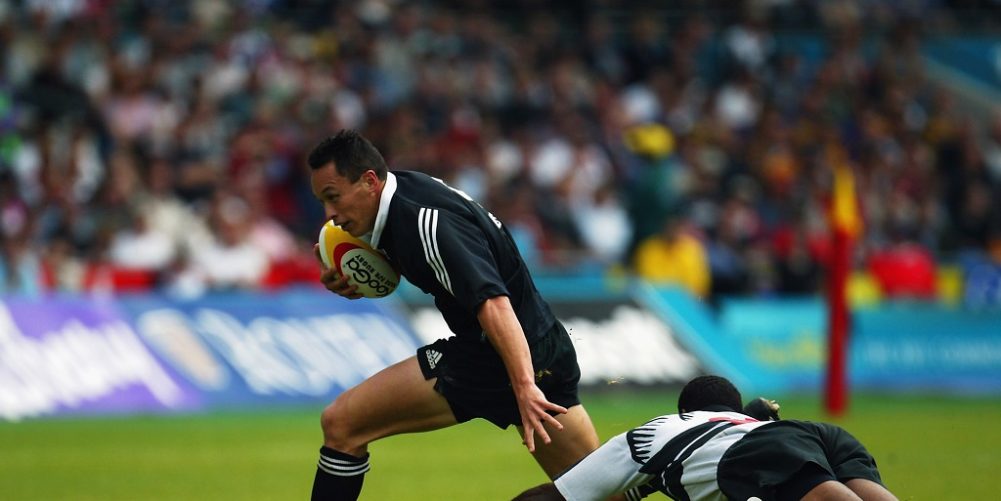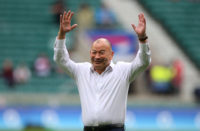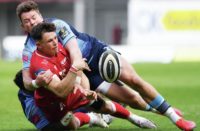2002 Manchester
Four years on the Sevens took centre stage filling the 33,000 capacity City of Manchester Stadium – later to become the home of Manchester City – for all four sessions over the two days which ensure a massively important Games for British sport went out on a high. Within months the movers and shakers, much encouraged, started planning and plotting a serious bid for London to stage the 2012 Olympic Games.
Another vintage New Zealand squad pitched up and although there was no Cullen or Lomu the likes of Mils Muliana, Rodney So'oialo and Chris Masoe were now putting some stick about along with stalwarts like Eric Rush and Bruce Reihana. England fielded a proper team this time with Josh Lewsey, Henry Paul, Phil Greening and Ben Gollings all top notch Sevens players and were going well when they just missed out 7-5 to Fiji in the quarters, a game they should probably have won.
Fiji on paper had a phenomenal side with the unique talent of Rupeni Caucau available for Serevi to let loose along with the speedy Vilimoni Delasau and Norman Ligairi but they had the tough route through the finals having to beat a strong South Africa in the semis and had nothing left in the tank come the New Zealand showdown.
They also lost a man for two minutes at a key stage which you can't do against New Zealand who were worthy winners. England, very possibly the second best team in the tournament, beat Australia 36-12 to win the Plate.
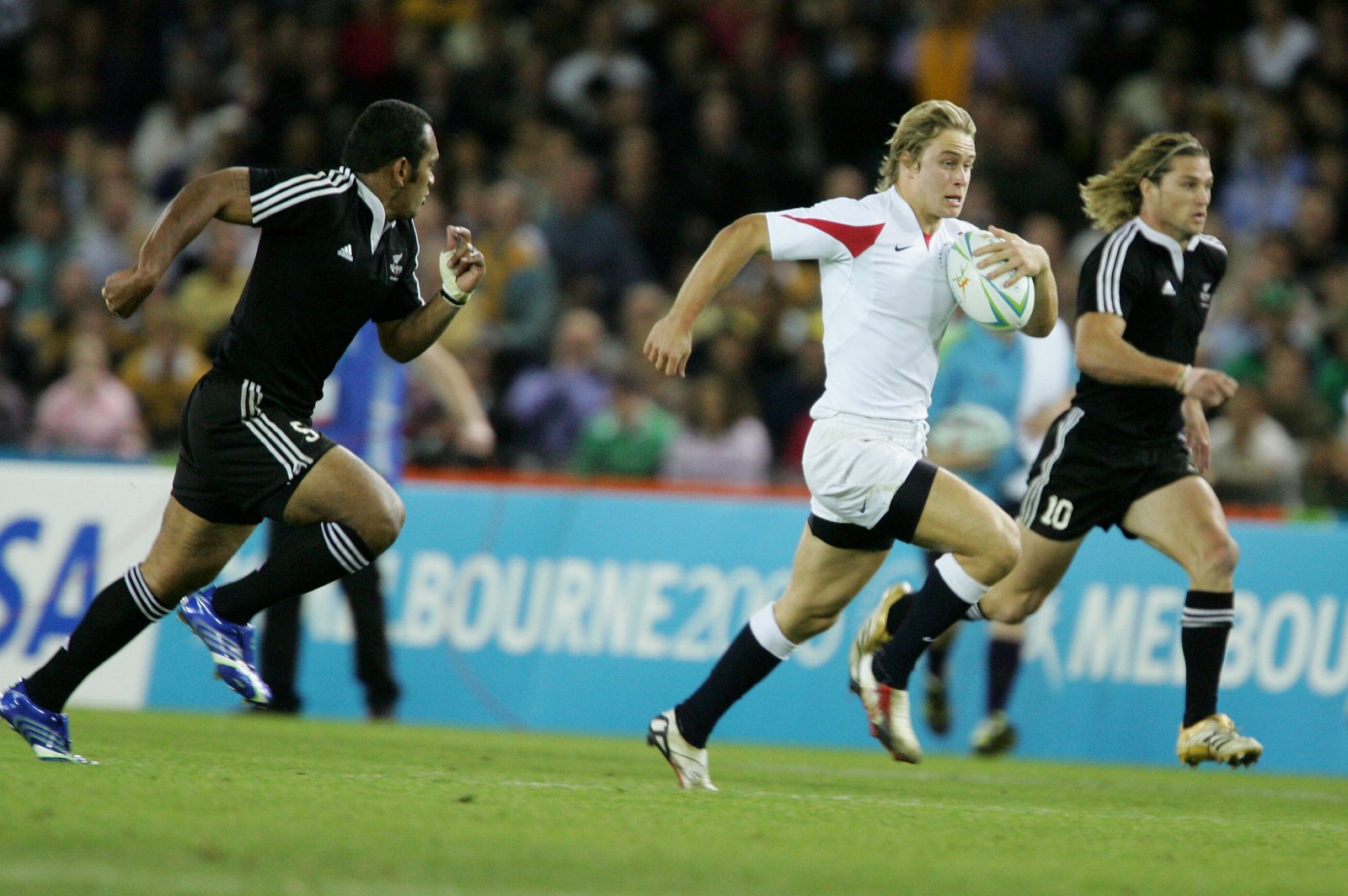
2006 Melbourne
Another resounding success in Australia at the indoor Telstra Dome with a world record (at the time) 55,000 paying spectators watching the second day of competition which saw New Zealand make it a hat-trick of titles but not before an enterprising England team, spearheaded by Mat Tait playing the best rugby of his career, had threatened a major upset.
England weren't all about Tait – a young Danny Care buzzed around to good effect, Ben Gollings, Tom Varndell and Richard Haughton were sharp and Henry Paul provided the nous – but the Newcastle Falcons man scored a sensational hat-trick in the quarter-finals against Samoa, added two more in the semi-final when England beat Fiji and opened up with a blazing effort in the final against New Zealand before the Kiwis rallied strongly, eventually winning 29-21.
Tait, discarded by England the previous season after probably being capped a tad early, scored nine tries in total and was unsurprisingly voted player of the tournament.
New Zealand by now were beginning to field a specialist Sevens squad closely related to that which competed in the world series but the likes of 15s stars Cory Jane and Liam Messam provided plenty of X-factor.
Serevi was still there pulling the strings for Fiji and William Ryder looked the heir apparent, but although winning the bronze medal the squad lacked the physicality of some before it.
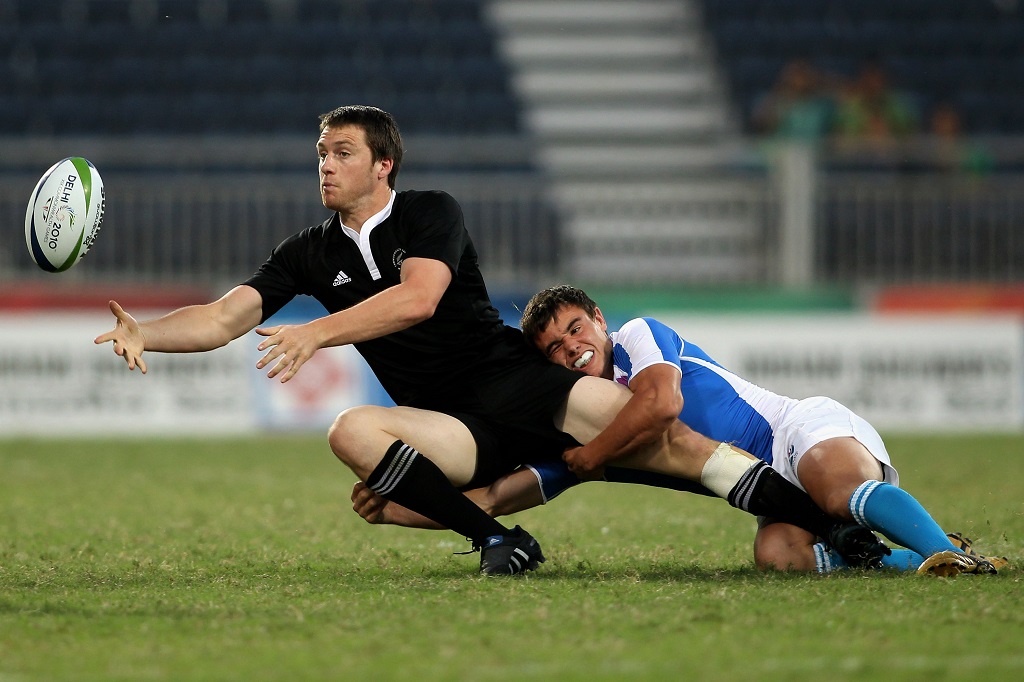
2010 New Delhi
Rugby Sevens had finally won its place in the Olympic movement the previous year at a vote in Sydney which was probably just as well because this tournament was a little ill-starred and didn't make much of an impression despite the best efforts of all those involved.
Tucked away at the Delhi University sports complex it attracted disappointingly small crowds and lacked atmosphere right until the very final stages of the knock-out competition. The absence of Fiji also detracted massively with the Fijians being temporarily suspended from the Commonwealth following a military coup in the Pacific island nation.
By now all the nations were relying almost exclusively on their specialist Sevens squad but that doesn't mean to say there weren't some major emerging 15s talents on view. Nothing could disguise the all round class of Ben Smith for New Zealand who marched to their fourth title while in the Australia team it was Bernard Foley and Nick Phipps who pulled the strings, both to become much better known in the years to come. Liam Gill, a dynamic young flanker, also took the eye.
The two medal matches were the undoubted highlight New Zealand squeezing past Australia 24-17 to win gold and South Africa defeating England 17-14 to claim the bronze.
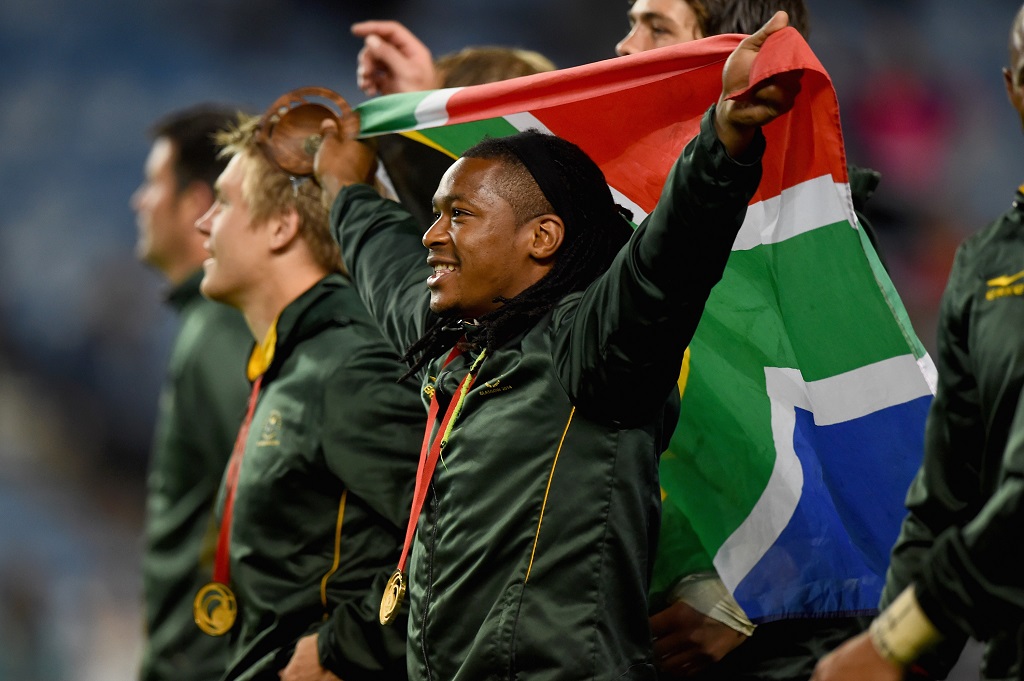
2014 Glasgow
Even though Fiji were still missing from the Commonwealth Games, Sevens was back in top form with raucous sell-out crowds at Ibrox, the historic home of Rangers FC, to finally witness the previously unthinkable, a New Zealand defeat.
A superbly drilled and very quick South Afirca side finally stopped the Kiwis unbeaten run by winning 17-12 in the final and, in truth, had looked best in class throughout the tournament not least in the quarter-finals when they dismissed Scotland 35-12 and then a very talented Samoa side 35-7 in the semi-final.
The Blitzbokke were a very talented team with the gas of Cecil Africa, Seabelo Senatla and Cornal Hendricks and the all-round talent of Werner Kok, Kwagga Smith and Warren Whitely.
Hendricks and Whitely soon graduated to full Springbok honours and Smith has announced his determination to do likewise this season.
New Zealand in contrast struggled a little and found life quite tough in the knock out stages, beating both Kenya and Australia 19-7.
Australia took bronze, defeating Samoa 24-0 while England beat Wales 17-15 in the Plate Final. Thereafter it was all eyes on Rio 2016 and Rugby Sevens' Olympic debut where Fiji announced their return in some style.

